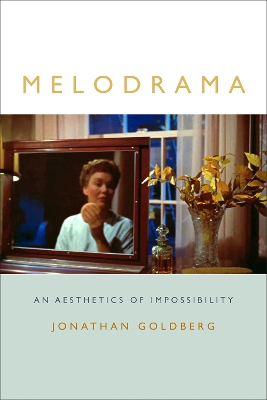Theory Q
1 total work
Offering a new queer theorization of melodrama, Jonathan Goldberg explores the ways melodramatic film and literature provide an aesthetics of impossibility. Focused on the notion of what Douglas Sirk termed the "impossible situation" in melodrama, such as impasses in sexual relations that are not simply reflections of social taboo and prohibitions, Goldberg pursues films by Rainer Werner Fassbinder and Todd Haynes that respond to Sirk's prompt. His analysis hones in on melodrama's original definition--a form combining music and drama--as he explores the use of melodrama in Beethoven's opera Fidelio, films by Alfred Hitchcock, and fiction by Willa Cather and Patricia Highsmith, including her Ripley novels. Goldberg illuminates how music and sound provide queer ways to promote identifications that exceed the bounds of the identity categories meant to regulate social life. The interaction of musical, dramatic, and visual elements gives melodrama its indeterminacy, making it resistant to normative forms of value and a powerful tool for creating new potentials.
